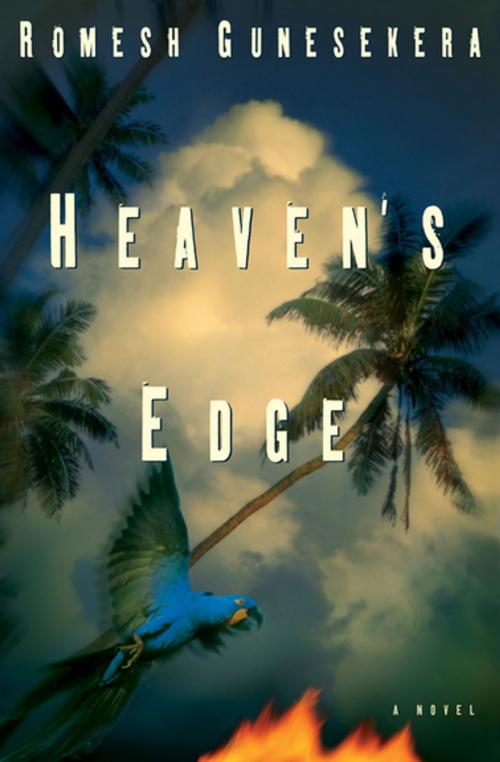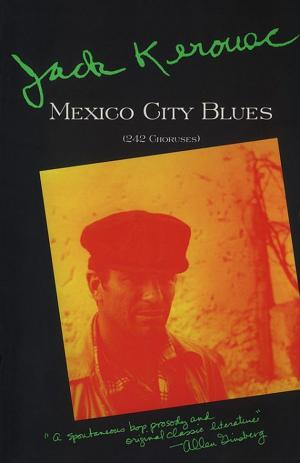| Author: | Romesh Gunesekera | ISBN: | 9780802199645 |
| Publisher: | Grove Atlantic | Publication: | December 1, 2007 |
| Imprint: | Grove Press | Language: | English |
| Author: | Romesh Gunesekera |
| ISBN: | 9780802199645 |
| Publisher: | Grove Atlantic |
| Publication: | December 1, 2007 |
| Imprint: | Grove Press |
| Language: | English |
“Gunesekera evokes his birthplace, Sri Lanka, as he presents a love story made more brilliant and more sweet by the destruction all around.” —Entertainment Weekly
Following the Booker nominated Reef and the acclaimed book The Sandglass, Romesh Gunesekera’s third novel, Heaven’s Edge, was hailed by the New York Times Book Review as “his most accomplished yet . . . Wistful, melancholy and mysterious . . . a complex novel that entwines the individual’s quest for wholeness with a country’s longing for lost—and better—times.”
In search of a dream, Marc leaves London for the land of his patrimony and family secrets—an island once said to be near the edge of heaven but now despoiled by war. After his affair with a subversive “eco-warrior” is cut short when she disappears, Marc must search for her among the mystical land’s underground dens of iniquity and ghostly colonial mansions. In the midst of gun battles and foot races, can Marc achieve a happiness he would defend with his life?
Heaven’s Edge is “an intriguing hybrid, one part post-colonial adventure story, two parts coming-of-age tale . . . It feels positively epic given how much riffing Gunesekera does on the island’s landscape, its groves of mango and jacaranda trees, the lushness of its lantana blossoms” (John Freeman, San Francisco Chronicle).
“The central themes [of Heaven’s Edge]—war and peace, violence and nonviolence—
are timeless and timely . . . [Gunesekera’s] feeling for the intense natural beauty of his native land is palpable in every phrase of his lyrical and inventive prose style, and runs like a silver thread through the dark territory he explores.” —Los Angeles Times
“Gunesekera evokes his birthplace, Sri Lanka, as he presents a love story made more brilliant and more sweet by the destruction all around.” —Entertainment Weekly
Following the Booker nominated Reef and the acclaimed book The Sandglass, Romesh Gunesekera’s third novel, Heaven’s Edge, was hailed by the New York Times Book Review as “his most accomplished yet . . . Wistful, melancholy and mysterious . . . a complex novel that entwines the individual’s quest for wholeness with a country’s longing for lost—and better—times.”
In search of a dream, Marc leaves London for the land of his patrimony and family secrets—an island once said to be near the edge of heaven but now despoiled by war. After his affair with a subversive “eco-warrior” is cut short when she disappears, Marc must search for her among the mystical land’s underground dens of iniquity and ghostly colonial mansions. In the midst of gun battles and foot races, can Marc achieve a happiness he would defend with his life?
Heaven’s Edge is “an intriguing hybrid, one part post-colonial adventure story, two parts coming-of-age tale . . . It feels positively epic given how much riffing Gunesekera does on the island’s landscape, its groves of mango and jacaranda trees, the lushness of its lantana blossoms” (John Freeman, San Francisco Chronicle).
“The central themes [of Heaven’s Edge]—war and peace, violence and nonviolence—
are timeless and timely . . . [Gunesekera’s] feeling for the intense natural beauty of his native land is palpable in every phrase of his lyrical and inventive prose style, and runs like a silver thread through the dark territory he explores.” —Los Angeles Times















